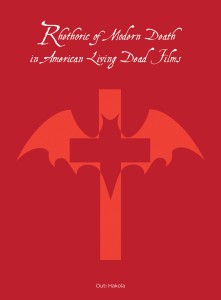Rhetoric of Modern Death in American Living Dead Films
de Outi Hakola


Moyenne des votes : ![]()
| 0 | vote | |
| 0 | vote | |
| 0 | vote | |
| 0 | vote |
Votre vote : -
Description de l'ouvrage:
Zombies, vampires, and mummies are frequent stars of American horror films. But what does their cinematic omnipresence and audiences’ hunger for such films tell us about American views of death? Here, Outi Hakola investigates the ways in which American living-dead films have addressed death through different narrative and rhetorical solutions during the twentieth century. She focuses on films from the 1930s, including Dracula, The Mummy, and White Zombie, films of the 1950s and 1960s such as Night of the Living Dead and The Return of Dracula, and more recent fare like Bram Stoker’s Dracula, The Mummy, and Resident Evil. Ultimately, the book succeeds in framing the tradition of living dead films, discussing the cinematic processes of addressing the films’ viewers, and analyzing the films’ socio-cultural negotiation with death in this specific genre.
Voir le site internet de l'éditeur Intellect Books
> Du même auteur :
> Sur un thème proche :
Necessary Death (2023)
What Horror Movies Teach Us About Navigating the Human Experience
de Preston Fassel et Chris Grosso
Queer for Fear (2024)
Horror Film and the Queer Spectator
Horror and Science Fiction Cinema and Society (2024)
American Culture and Politics in the Cold War and After Through the Projector Lens
The Exorcist Effect (2023)
Horror, Religion, and Demonic Belief